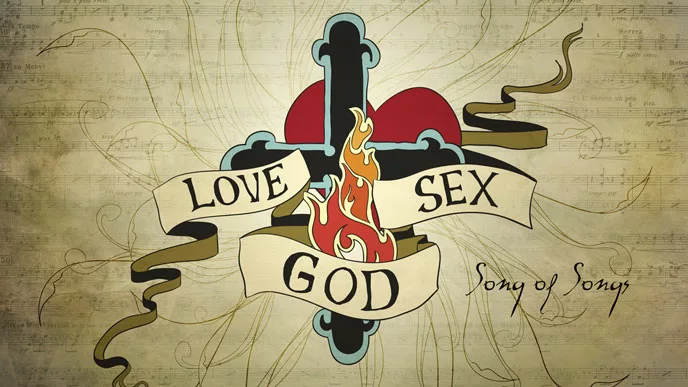Since I attended the conference on Radical Theology – Subvert the norm II, I have been asking myself what would a Radical Salvationism look like?
Then I stumbled across the following quote by Cadet Christopher Footer in JAC Issue #45:
There is only one God, and there is only one Salvation Army. That army however is made of many people; and many people have many views. There are traditional Salvationists, Pentecostal Salvationists, radical Salvationists, neo-Salvationists, primitive-Salvationists… The list is endless. The focus of this paper is Primitive Salvationism, however it is important to state from the very beginning that these labels are just that, labels. Not everyone will fit neatly into a ‘Salvationist box’; and even when someone does fit into a box this does not mean they are incapable of stretching beyond the boundaries of that box. These labels should aid us in discovering who we are, and what we stand for; not constrict us from expressing ourselves to our God, and to those around us.
 When I saw the labels Radcial Salvationist and Primitive Salvationist I felt a need to explore the difference between these two positions within Salvationism. I agree with Footer that these labels are just that, labels and must not restrict us in how or what we believe about god but must function as starting points for an ongoing conversation of what it means to explore your faith in a Salvationist context.
When I saw the labels Radcial Salvationist and Primitive Salvationist I felt a need to explore the difference between these two positions within Salvationism. I agree with Footer that these labels are just that, labels and must not restrict us in how or what we believe about god but must function as starting points for an ongoing conversation of what it means to explore your faith in a Salvationist context.
Since there is no authoritative source on what primitive salvationism or radical salvationism might be I will simply juxtapose some of the distinctives of both agains each other trying to remember all the while that the only real starting position for any salvationist theology is the doctrines of the Salvation Army and those doctrines claim in turn that the scriptures of the old and new testament is the only starting point for any life or practice of a salvationist.
So in trying to imagine what a radical salvationism (I posit here that there has been no real attempt to imagine this before as a cursory googling of the term yields mostly salvationists who by the term radical means extreme or committed salvationism as opposed to the philosophical stream of radicalism) as opposed to a primitive salvationism would look like that seems a good place to start, namely how we read the doctrines and the scriptures. Now I want to right at the beginning apologise for the reductionist way I will portray both modernism and post-modernism and many other concepts that I am well aware are much more complex than a simple blog post could ever do justice, but this is a simple blog post so you will have to restrain yourselves from pointing out that I have oversimplified these concept unless if by doing so I have missed the mark completely in which case: Flame away!
Before we get into the substance of this post, I also want to state that this is far from a finished line of thought. It is more of an experiment, an imaginary what if and a plea for others to consider the implications and submit their thoughts. So please blog about it and link here, comment on here, on twitter and Facebook.
I think the most fundamental difference between primitive and radical salvationism would be one of worldview. Primitive salvationism wholly embraces a modernistic worldview or maybe even a pre-modern victorian or imperialistic worldview. Whereas the radical salvationist perspective would be post-modern. This in turn colours how the two groups would approach and read both the SA Doctrines and the Scriptures of the old and new testament.
Scriptures and doctrines
The primitive salvationist would probably approach scripture as a biblicist and in a modernistic way be prone to treat both the biblical text and the doctrines of TSA as a legal document where you have access to indexed historical and absolute universal truth. It becomes a roadmap with a clear starting point and a decisive ending point. As scripture is viewed as hard truth, doctrines also become non-negotiables but the landmarks of the tradition by which one navigates. I will not be lured to address the inherent difficulties of biblicism but will refer to perhaps “the bible made impossible” by Christian Smith.
A radical salvationist approach would on the other hand be very different. The radical salvationist would approach scripture not as a legal document but rather as an eclectic collection of poetry, narrative, arguments and counter arguments. Maybe as a theological discourse one overhears and then interprets and deconstructs to reach for that which is unattainable, the event harboured in the name of god. Scripture would then not be the answer book of fundamentalism but the starting point for theological conversation and discourse. In a similar way the doctrines would be a starting point for conversation and deconstruction where one would be looking for the event of salvationism. Perhaps the main discourse would be, what is salvation, or the event of salvation and can one truly be saved unless all of creation is redeemed and saved or gathered up into that event which is harboured in the name of god.
The military metaphor
In primitive salvationism the military metaphor is embraced to the n:th degree. In some ways it could be said to be the hallmark of primitive salvationism, however that may be to over-simplify the issue. Primitive salvationism is all about the early leaders of the salvation army and to adhere to their words of wisdom as if they convey a method that transcends time and holds universal truth. Maybe because the early leaders words are saturated with the military metaphor, the metaphor itself becomes central to primitive salvationism.
A radical approach would need to deconstruct the metaphor and find what remains. Perhaps one could go to Aleksandr Solzhenitsyn’s words and decide that the war we fight is the battle within every heart. Although the most probable outcome would be to discard the military metaphor as a quaint legacy of an imperialistic age and claim that “We are lovers not fighters”. The move then would be towards radical (both as in extreme and in the etymological sense of “to the roots)” social justice and a gospel of grace and love.
Social action
It may be in social action that the primitive salvationist and radical salvationist finally meet, in both approaches there would be a relentless commitment to social justice. The only difference I think is the motivation behind the action.
A primitive salvationist’s primary concern, as I understand it, would be to prepare the way for sharing the gospel. Now that may sound cynical but I truly believe that while love will be a great motivator, the primitive salvationists view on what is the greatest love gift, would be to share the good news of salvation for the soul as it must be if you truly believe in the eternal ongoing punishment of the wicked.
A radical salvationist would after deconstructing salvationism, I think, arrive at a holistic view of salvation where social justice is part of god’s ongoing redeeming and salvific work. Alternatively a radical salvationist view would be that the call to social justice is part of god’s insistence and that, as we are gods incarnation here, it is our work to do.
What is left
With such a radical emphasis on deconstruction and relativising of both depth and surface of salvationism one might ask what is left to form a rallying cry for this group of radical salvationists. What there is, is a relentless commitment to deconstruction. A realisation that what we see in salvationists is not all there is to salvationism. The concept holds something more, something deeper, the event that defies deconstruction. In search of this the radical salvationist will deconstruct, what we do, what we are, what we believe and what it looks like. Knowing that if the god that insists, insists there be a Salvation Army then there is more to that call than what has been articulated in the doctrines and articles of war. There is a truth that stirs, an event hidden in the words we use.
So we call out, not entirely sure what or who it is we call to, and yet we call from depths of our being for the other, come!









great thought-provoking article, but what do radical salvationists believe in that is not deconstructed?
Thank you for a great question. It let’s me clarify. I believe in deconstructing everything. Deconstruction is not the absence of belief or faith. It is the strong belief that there is so much more to an idea than what is at the surface. There is a vocative order of things that is stirring within the word or concept.
So deconstructing the name of god is not a disbelief but rather a belief that god is so much more than the name could ever express. Deconstructing salvationism is not a rejection of salvationism but the conviction that salvationism is so much more than what we see in the Salvation Army today.
OK,
may I offer some loving critique, here? (Again, what are you going to do to stop me? _smile_)
I see both Primitive Salvationism _and_ Radical Salvationism as post-modern branches on the same tree. I see them both as criticism of the late modern compromised Salvation Army (post 1945, circa).
With these glasses, Primitive Salvationism is a genuinely post-modern project where the followers have deconstructed Salvationism and found that, at it’s core, the pieces that make up true Salvation Army Identity are clearly Missional, clearly Holistic in service and proclamation of the Gospel, clearly activistic and that the War on Evil is more than live action role-playing.
Now, I don’t see myself as a primitive salvationist and hence I can not speak for “them”. But I just want to underscore that it is not obvious to me that this is Modern, or indeed Victorian romanticism. I rather think of Primitive Salvationism as a reform movement, criticising the passified Salvation Army.
There is also in the Primitive Salvationism ranks a focus on Holiness, where you and me probably both would use words such as Holistic Salvation. Theologically the difference between being made Holy through and through, Spirit, Soul and Body or being saved through and through might not be substantial… If the end result is for the whole person to be raised up, is it maybe just the choice of words /metaphor that differs, not theology?
Again, being wholly Holy, wholly saved, wholly healed or wholly redeemed are vitually synonym, no?
The Primitive Salvationism movement are re-using old metaphors instead making new ones. And Radical Salvationist could argue that language itself has changed over the years and that new ones must be invented. But that is, again, more linguistics and less theology…
Otherwise, I agree with you. And this is, I think, an important starting point in discussion about Salvation Army Identity.
Thank you Mackan for this thoughtful reply. I have yet to meet a post-modern primitive salvationist but as my experience with primitive salvationism is fleeting at best, I am happy to take your word for it. Maybe I am merely confused by the trappings of primitive salvationism and have misjudged them.
One could argue that we _are_ all Post-modern, but we try to deal with it in different ways. I don’t see them quote McLaren as often as you or me, but… …reform movements are reform movements, regardless of how they self-identify. And criticism of late-modern thought patterns is criticism of late-modern thought patterns, regardless if we call them “post modern” or not.
It _is_ de facto de-constructing Salvationism, the way I see it. And it seems to me that we tend to arrive to _very_ similar conclusions on what Salvationism “really is”, if you scratch upon the surface of Language.
And again – I might be totally wrong. Just my $0.02.
I remain unconvinced that we are all post-modern, although we all cohabit a post-modern society. I also do not agree that primitive salvationist deconstruct salvationism, they certainly critique it but that is not entirely what post-modern deconstruction is about, although it is part of it.
Interesting read! And interesting and good comments from Mackan. Regarding the modern/post-modern PS’ers often talk about that we live in a “post post-modern” world. And have a post post-modern approach to it. I’m not the right person to say what that actually means (or what modern even mean!), but it’s a phrase often used.
And I think Mackan hits the nail when he says it’s about attacking/reforming the passive Army that happened sometime after the 40s.
BUT, what I think you really got wrong is the view on Social Justice from a PS perspective. And here the PS’ers themselves are probably a bit unclear. We love the quote William Booth, but depending on when he said it (before or after 1890) his view will be very different. But I’d say that one essential of PS is the “‘Darkest England’-change the world-put a roof over Regent Park-let the Army roll on the Millenium on earth”-view. A view that makes “social work” endlessly more than just helping the poor or use it as a way to get people saved. Rather the opposite! The whole point is that it’s about creating a totally new kind of world. Create a world where “social work” won’t be needed. If anything, it’s a utopian view that we mostly share with the most hard core utopian socialists. Comparing writings and speeches from the Soviet Union with the ones from TSA 1890-1910/20 is quite fascinating as you see the similarities. A whole new world would be established, a new world order, a world of peace and justice where the problems of today is finally solved. On a all of the society. And it’s certain that it will be established – it’s only a questions of time. The difference of course being that the Soviet Union wanted to reach that through military power, while the Army would reach it with love.
I like this, and I like the idea of creating a new kind of world, this is something I would aspire to! Although I think that the inherent optimism in that statement actually is a modernistic perspective.
What a post post-modern perspective would be completely eludes me as well so I think maybe it is best left alone.
Thank you for critiquing my thoughts in such a constructive way,
Miriam asked me whether I think radical salvationism is a movement whithin the Salvation Army today or a movement I’d like to see or if it was a re-interpretation of primitive salvationsim, here is my answer.
Radical theology and Christianity is a movement I see in globally today, not that it’s big, it’s just spread out. It is a movement I can identify as someone who has completely moved into post-modernity. The evangelical christianity in Sweden is so invested in modernity that it is hard for people like me to find any common ground. So no, this is not something I see within the army or a re-interpretation of primitives, it is simply an invitation to conversation for those who like me feel drawn to post-modern thinking and are looking for new ways to artikulate their salvationism.